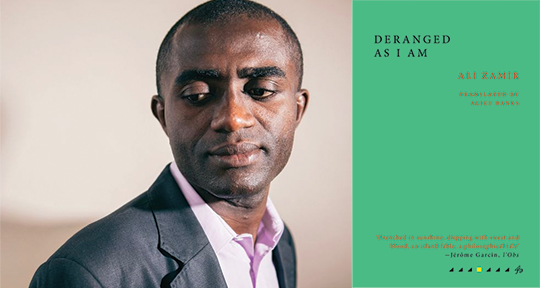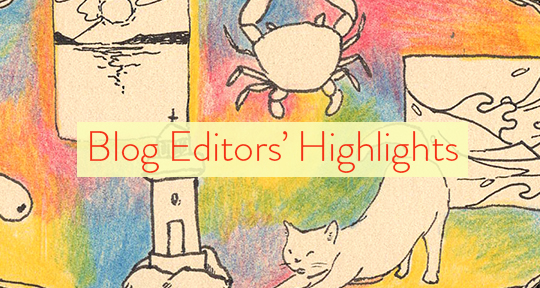Deranged As I Am by Ali Zamir, translated from the French by Alice Banks, Fum d’Estampa Press, November 2022
In Ali Zamir’s third novel, Deranged As I Am, narrator-protagonist Deranged is an impoverished man, somehow surviving on the paltry daily wages he manages to earn through hard labour at the docks from transporting goods and cargo, who keeps himself aloof from his fellow workers who make fun of him, using his clothes as a calendar: “Deranged as I am I have only seven ancient shirts in all. Seven pairs of trousers and seven pairs of shorts all pocked with holes and on each of them a day of the week so I don’t forget remaining me that I shouldn’t wear the same outfit twice you see?!” The novel itself begins intensely in medias res with Deranged trapped in a confined space, wounded and on the verge of death, his limbs tied up as flies swarm around him. His crying out, while exaggerated, highlights a jagged agony.
The rest of the narrative recounts the incidents that led to this low point, with Deranged refusing to keep quiet and hunker down in the face of his many painful oppressions: “Let me make you understand this loud and clear as long as my heart beats your ears will bleed they will bleed until my soul is dizzy lest I disappear with a stream of tears in my charmless eyes.” Situated at the dizzy intersection of various vulnerabilities, he has minimal hope of having his voice heard or his exploitation compensated, because to the “angels of darkness,” as he calls the flies that represent his numerous tormentors, he is nothing but a speck of dirt that they can wipe away and then go about their day. The readers therefore become interlocutors, individuals who would not easily dismiss him or his story, and give a patient ear to his list of troubles and problems.


